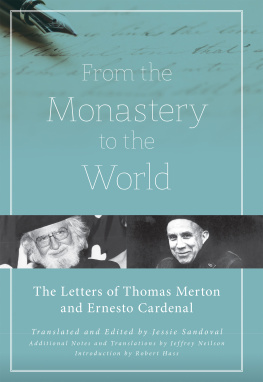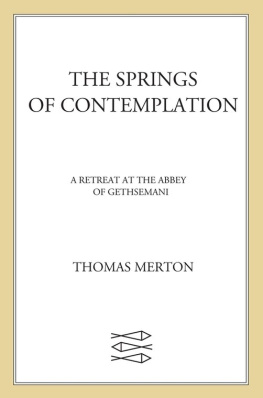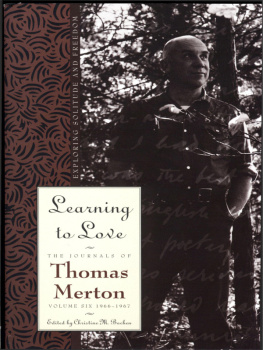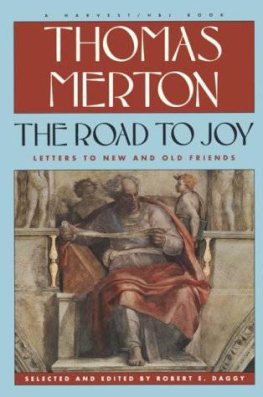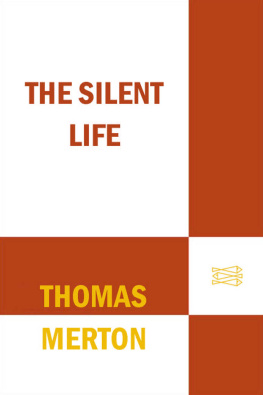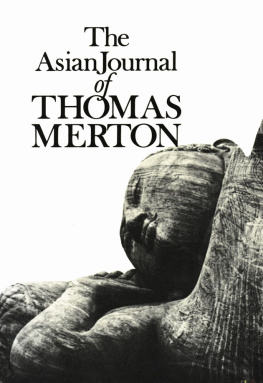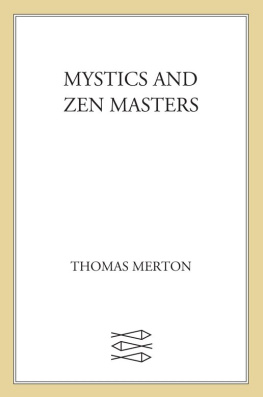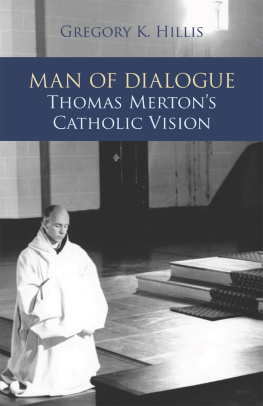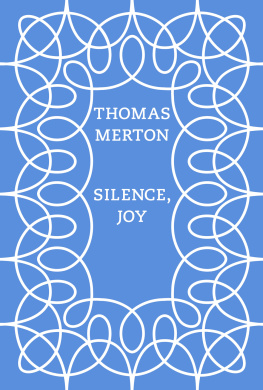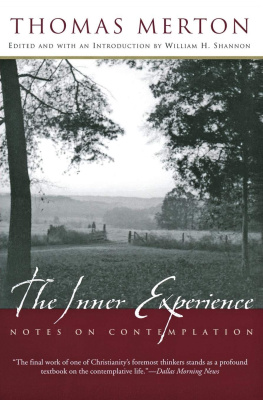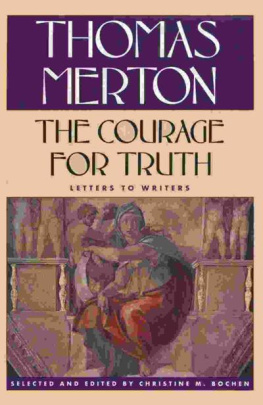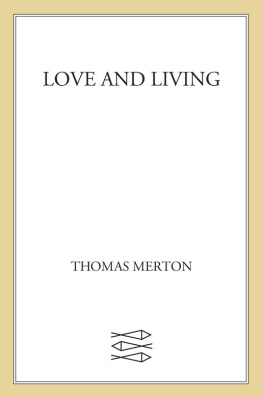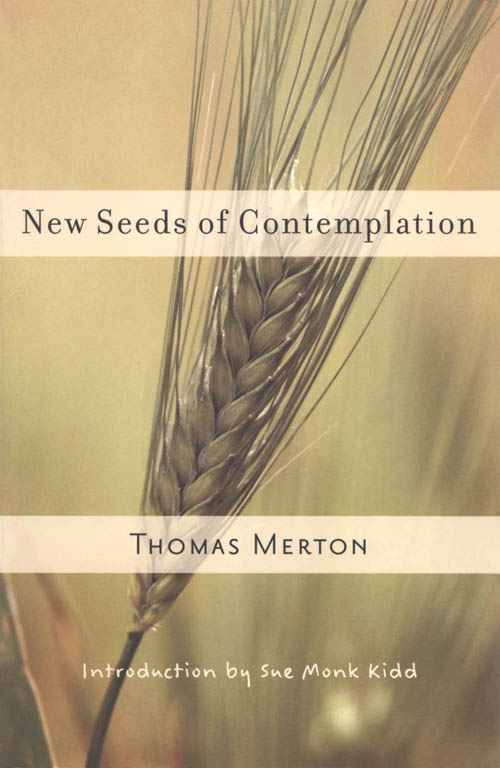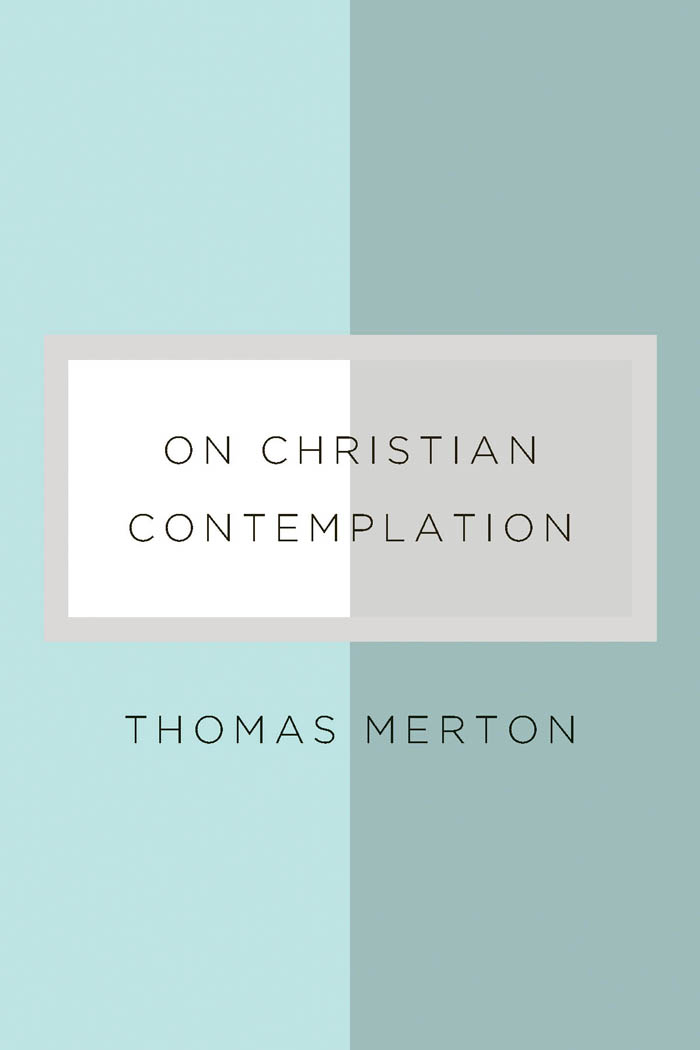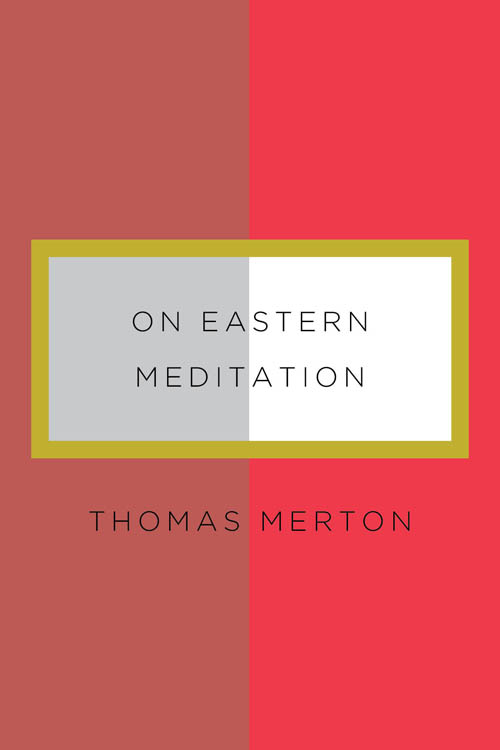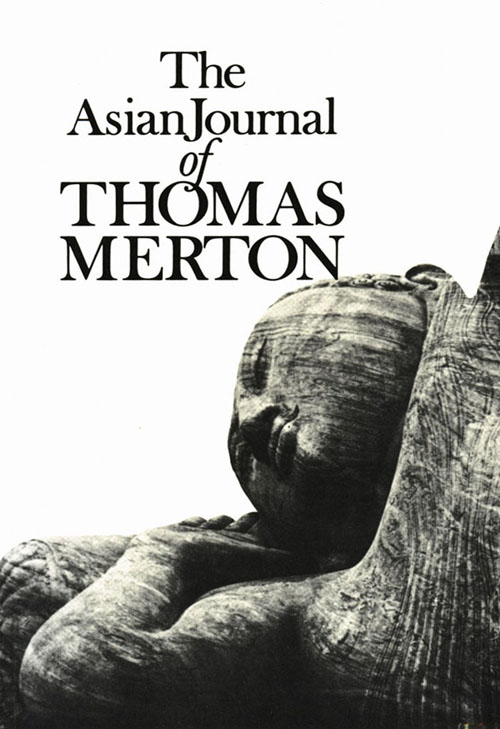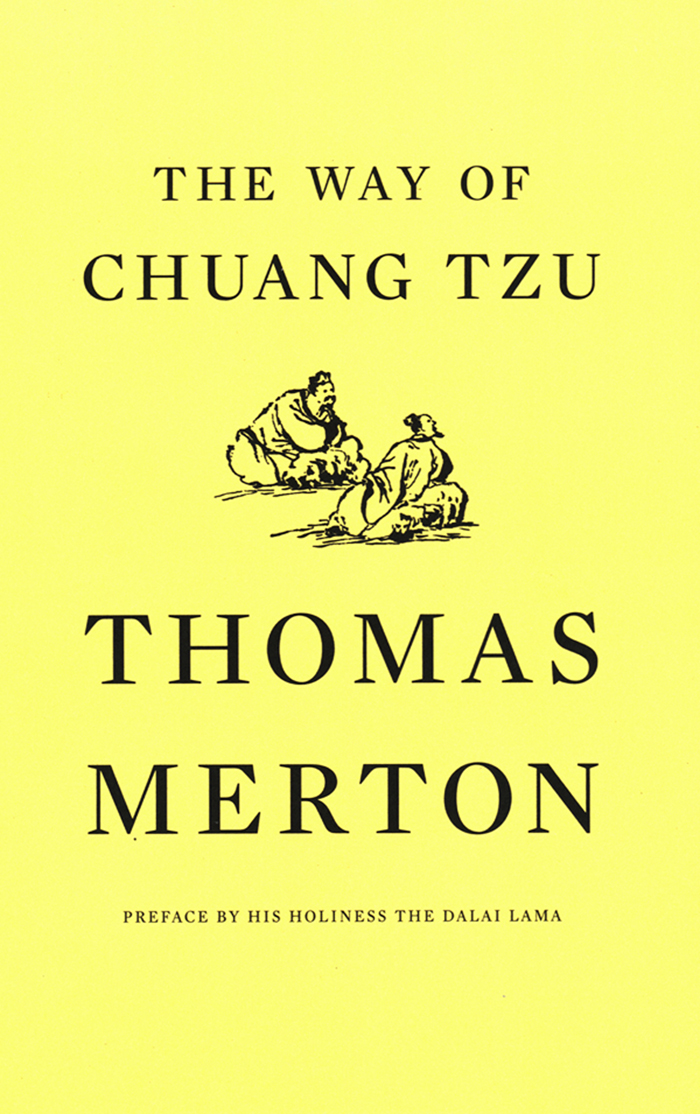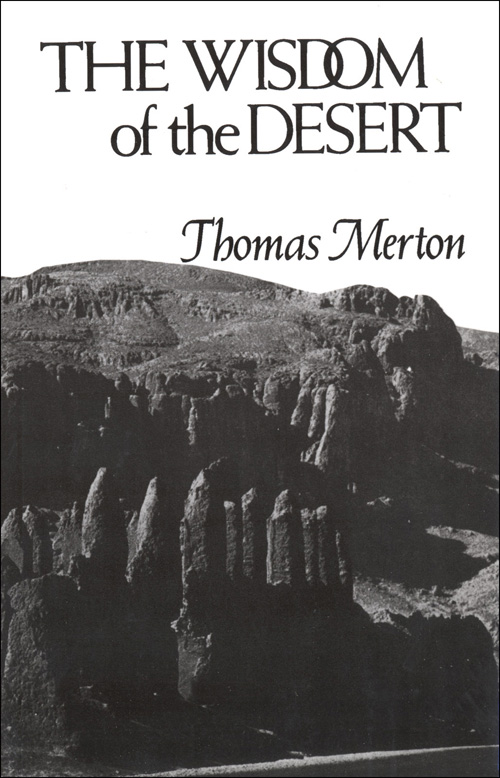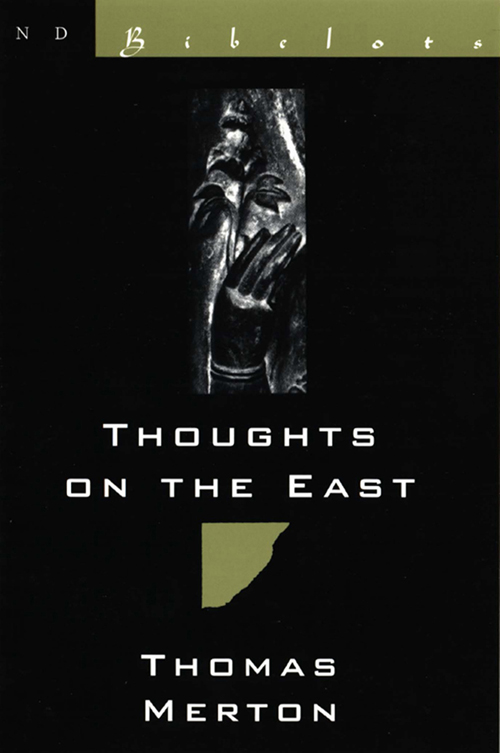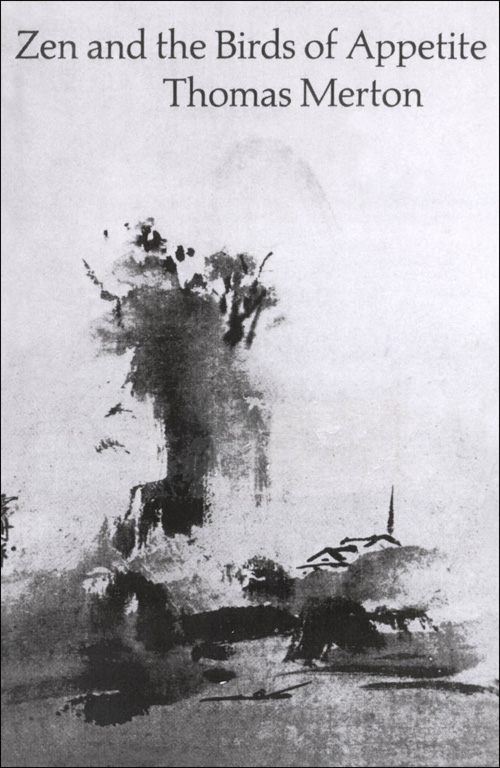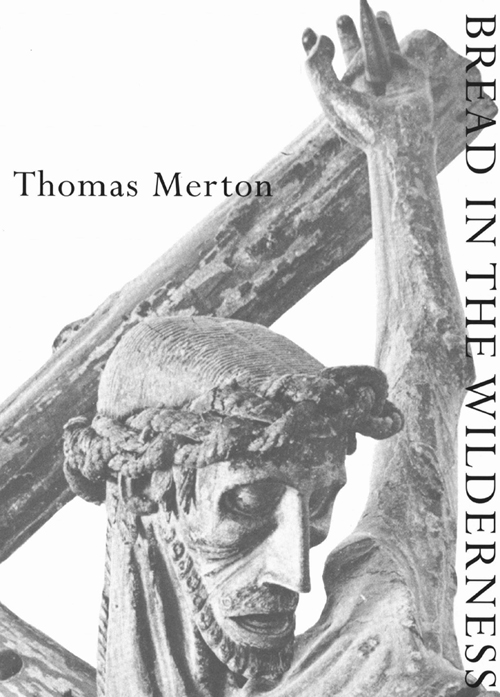ZEN AND THE BIRDS OF APPETITE
With no bird singing
The mountain is yet more still.
ZEN SAYING
Ride your horse along the edge of the sword
Hide yourself in the middle of the flames
Blossoms of the fruit tree will bloom in the fire
The sun rises in the evening.
ZEN SAYING
A source of spiritual inspiration and a guide for many people, Merton was above all a man of prayer, a thinker who challenged the certitudes of his time and opened new horizons."
Pope Francis
Thomas Merton titles from New Directions now available as eBooks:
ZEN AND THE BIRDS OF APPETITE
THOMAS MERTON

Copyright 1968 by The Abbey of Gethsemani, Inc.
Library of Congress Catalog Card Number: 68:25546. All rights reserved. Except for brief passages quoted in a newspaper, magazine, radio, website, or television review, no part of this book may be reproduced in any form or by any means, electronic or mechanical, including photocopying and recording, or by any information storage and retrieval system, without permission in writing from the Publisher Manufactured in the United States of America. Published simultaneously in Canada by Penguin Books Canada Limited. New Directions Books are published for James Laughlin by New Directions Publishing Corporation, 80 Eighth Avenue, New York 10011.
ISBN 978-0-8112-1972-3
For Amiya Chakravarty
CONTENTS
AUTHORS NOTE
Where there is carrion lying, meat-eating birds circle and descend. Life and death are two. The living attack the dead, to their own profit. The dead lose nothing by it. They gain too, by being disposed of. Or they seem to, if you must think in terms of gain and loss. Do you then approach the study of Zen with the idea that there is something to be gained by it? This question is not intended as an implicit accusation. But it is, nevertheless, a serious question. Where there is a lot of fuss about spirituality, enlightenment or just turning on, it is often because there are buzzards hovering around a corpse. This hovering, this circling, this descending, this celebration of victory, are not what is meant by the Study of Zeneven though they may be a highly useful exercise in other contexts. And they enrich the birds of appetite.
Zen enriches no one. There is no body to be found. The birds may come and circle for a while in the place where it is thought to be. But they soon go elsewhere. When they are gone, the nothing, the no-body that was there, suddenly appears. That is Zen. It was there all the time but the scavengers missed it, because it was not their kind of prey.
PART ONE
Zen In Japanese Art by Toshimitsu Hasumi, translated from the German by John Petrie; London, Routledge and Kegan Paul, 1962; New York, Philosophical Library, 1962.
Zen is the Japanese term for the Chinese Chan, from the Sanscrit Dhyana. For the sake of convenience, I use Zen when referring to Chan.
This question was submitted to me by one of the members taking part in the Third East-West Philosophers Conference at the University of Hawaii, June-July, 1959. It was based on the paper I contributed to this Conference. My answer, which follows here, requires further elaboration for which I have no time just now. It involves my view on the Judaeo-Christian creation account.
Throughout this paper, Innocence is to be taken as the state of mind in which inhabitants of the Garden of Eden used to live around the tree of life, with eyes not opened, all naked, not ashamed, with no knowledge of good and evil; whereas Knowledge refers to everything opposite of Innocence, especially a pair of discriminating eyes widely opened to good and evil.
See D.T. Suzuki, (trans.) Lankavatara Sutra (London: Routledge & Kegan Paul), 1957, pp. 32, 43, 89, etc., where the term is translated effortless or no striving act.
D.T. Suzuki (trans.) Asvaghosas Awakening of Faith (Chicago: Open Court Publishing Co.), 1900, pp. 78-9.
There was once a great hermit in the mountains and he was attacked by robbers. But his cries aroused the other hermits in the neighborhood, and they ran together and captured the robbers. These they sent under guard to the town and the judge put them in jail. But then the brothers were very ashamed and sad because, on their account, the robbers had been turned over to the judge. They went to Abbot Poemen and told him all about it. And the elder wrote to the hermit saying: Remember who carried out the first betrayal, and you will learn the reason for the second. Unless you had first been betrayed by your own inward thoughts, you would never have ended by turning those men over to the judge. The hermit, touched by these words, got up at once and went into the city and broke open the jail, letting out the robbers and freeing them from torture.The Wisdom of The Desert, XXXVII.
Disciple of Isan Reiyu, 770-853.
A certain brother asked of an elder, saying: If a brother owes me a little money, do you think I should ask him to pay me back? The elder said to him: Ask him for it once only, and with humility. The brother said: Suppose I ask him once and he doesnt give me anything, what should I do? Then the elder said: Dont ask him any more. The brother said again: But what can I do, I cannot get rid of my anxieties about it, unless I go and ask him? The elder said to him: Forget your anxieties. The important thing is not to sadden your brother, for you are a monk. The Wisdom of The Desert, XVCVIII.
The Dhammapada, verse 154.
Lived 1603-76.
A woman is said not to be qualified to be: (1) Mahabrahman, supreme spirit, (2) Sakrendra, king of the heavens, (3) Mara, evil one, (4) Cakravartin, great lord and (5) Buddha.
Abbot Pastor said that Abbot John the Dwarf had prayed to the Lord and the Lord had taken away all his passions, so that he became impassible. And in this condition he went to one of the elders and said: You see before you a man who is completely at rest and has no more temptations. The elder said: Go and pray to the Lord to command some struggle to be stirred up in you, for the soul is matured only in battles. And when the temptations started up again he did not pray that the struggle be taken away from him, but only said: Lord, give me strength to get through the fight.
Next page

